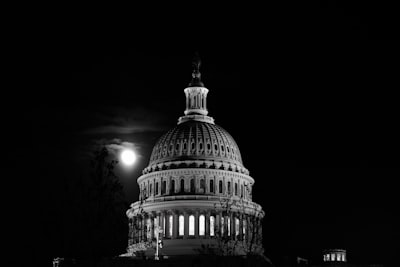Robert Garcia’s Oversight Leadership: A Signal Shift for House Democrats
In a political world increasingly defined by battles over institutional integrity and accountability, the election of Robert Garcia as the new leader of House Oversight Democrats deserves attention beyond the usual headlines. Garcia, a first-term Congressman from California, embodies a generational and ideological shift—one that could reshape how Democrats approach their critical watchdog role in an era of fierce partisan oversight.
Why Garcia? What’s at Stake
Robert Garcia’s swift ascent from Long Beach mayor to Congress and now to this high-profile committee position is remarkable. He breaks traditional molds: Garcia is not only the first openly gay immigrant elected mayor of a major U.S. city but also brings a background in education and urban policy rather than the traditional legal or business corridors typical of committee leaders.
This is significant because the Oversight Committee sits at the intersection of policy, politics, and public trust. Its remit crosses government accountability, federal investigations, and cultural flashpoints—everything from pandemic spending to the politicization of government agencies. Garcia’s leadership comes at a time when such issues don’t just dominate headlines; they drive polarization and institutional skepticism.
The Broader Impact: Policy, Politics, and Public Trust
Unlike previous Democratic leaders on the committee, who often matched Republican counterparts with sharp rhetoric, Garcia’s record suggests a focus on evidence-based policy and pragmatic negotiation. Yet, this could be a double-edged sword:
| Potential Strengths | Noteworthy Weaknesses or Risks |
|---|---|
| Pragmatic, bipartisan instincts may cool tensions | May face resistance from party purists or progressives |
| Grounded in urban and educational policy | Less experience with federal oversight’s sharp-edged political battles |
| Represents demographic and generational change | Unproven under national, high-fire scrutiny |
His leadership arrives as the committee investigates divisive issues: COVID-19 response, classified document handling, and alleged abuses of power. Garcia’s challenge will be to restore or maintain legitimacy in these inquiries—at a time when such legitimacy is doubted by half the country.
Context and Controversy
The Oversight Committee is often where DC’s partisan storms break most fiercely—think Benghazi, the Trump impeachment investigations, Hunter Biden hearings. Democrats under Garcia will have to carefully balance aggressive scrutiny of power with a credible commitment to transparency.
“Americans are exhausted by oversight theatrics that serve parties, not people,” notes former committee staffer Alyssa Cummings. “Garcia’s leadership could either reset the tone or get swept away by the very forces he hopes to temper.”
Beyond Garcia: Signals for the Future
Garcia’s selection highlights the party’s strategic calculation: prioritize diversity, youth, and practical governance to rejuvenate its image and perhaps reach disenchanted voters. More broadly, it suggests a Democratic pivot toward oversight as a tool for rebuilding public trust rather than simply scoring political points.
Whether this shift results in meaningful reform or simply new faces engaging in old battles will define not just Garcia’s legacy, but the future of Congressional oversight itself.
This article was inspired by the headline: 'Robert Garcia elected to lead House Oversight Democrats - Politico'.

Comments
No comments yet. Be the first to comment!